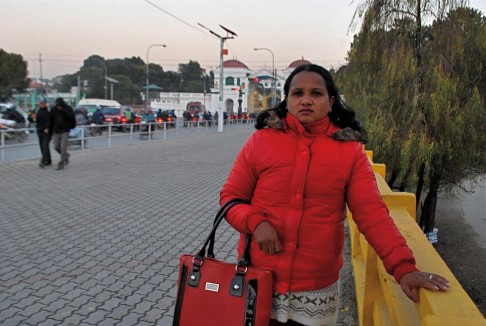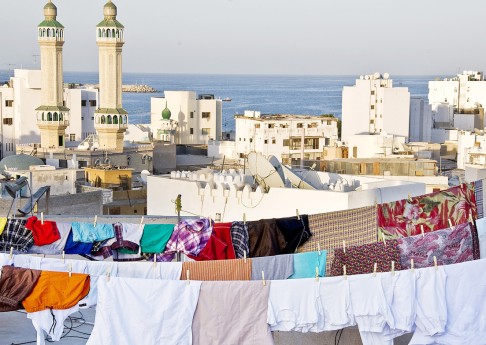Abuse and 20 hour shifts: Plight of Nepalese domestic workers seeking 'Gulf Dream'
Restrictions on women going abroad to work as maids set to be eased after several states agree to ensure rights amid reports of abuse
PUBLISHED : Saturday, 20 December, 2014, 9:41pm
UPDATED : Saturday, 20 December, 2014, 10:46pm
Bibek Bhandari in Kathmandu
Shanti Nepali shelled out 70,000 rupees to complete a six-month housekeeping training programme in order to work as a housemaid in Hong Kong. But when the territory's visa ban on Nepalese workers in 2005 scuppered her chances of working in the city, she ended up paying a middleman to work as a maid in Lebanon.
"I had to support my family financially," said Nepali, who was 23 at the time. "And I needed to recover the money to repay my loans."
Tilsara Oli, meanwhile, was married at 13 and lived through an abusive relationship for years. When she decided to take control of her life, a distant relative approached her with the "Gulf Dream". Oli had never heard of Oman but agreed to leave for a monthly salary of about US$300. She was 22.

Domestic worker Shanti Nepali ended up paying a middleman to work as a maid in Lebanon.
"I could have never earned that much money here - not even in a year," Oli said. "I also wanted to prove I could do something on my own."
But for Nepali, now 34, and Oli, 24, their quests for personal and financial freedom came at a cost. While Nepali was jailed for working illegally, Oli faced physical abuse and worked 20-hour shifts without a reliable salary.
Their stories underscore the plight of hundreds of Nepalese domestic workers in the Gulf working in precarious conditions, many of them defying laws aimed at barring them from migrating.
Now, in an attempt to protect those maids, Nepal is expected to ease restrictions on women migrating after reaching agreements with various destination countries.
About 2.4 million domestic workers in the Gulf were "subject to wide range of abuses, including unpaid wages, physical abuse and forced labour," according to Human Rights Watch.
Citing safety reasons, Nepal had introduced a series of curbs on women leaving to work abroad. In 1999, the country restricted women under 30 years old from applying for labour permits to Arab countries; the curb was lifted in 2010 but again reinstated in 2012.

In July this year, Nepal banned all women from migrating to the Gulf states.
Amid criticism from rights activists, the government has now signalled that the ban would soon be lifted after striking a deal with countries such as Malaysia, Saudi Arabia and Kuwait.
Guidelines for domestic workers are also being drafted. The government has proposed a new age limit requiring all domestic workers to be at least 25 years old and that they are employed through proper recruiting agencies.
"We are going to send female domestic workers in an institutionalised way," said Raghuraj Kafle, executive director of Foreign Employment Promotion Board, a government body working for the rights and welfare of Nepalese migrant workers. "We are pressing for bilateral agreements and trying to make the governments of the destination countries more responsible to ensure the rights and safety of our workers."
But waiting is not an option for many women. Dire situations at home mean many women, like Nepali and Oli, manage to defy the ban and travel to these countries through unofficial channels, mostly via India.
Consequently, they pay hefty sums to middlemen, take risks and typically lack proper information making them vulnerable in destination countries.
"They're first exploited in their home country and then abused abroad," said Manju Gurung, president of Pourakhi, a non-government organisation run by returnee migrant workers. "This should stop. A ban is not a solution. The government should instead explore alternate destinations like Israel and Hong Kong with better labour laws."
Between 1985 and 2001, Hong Kong was a leading destination for Nepalese women migrant workers.
A 2009 report by United Nations Development Fund for Women, now UN Women, said that the region could absorb 15,000 to 20,000 Nepalese workers, including an estimated 10,000 domestic workers, and urged the Hong Kong government to lift the ban.
"The policy is not only discriminatory but has also been imposed excessively beyond reason," the report stated.
